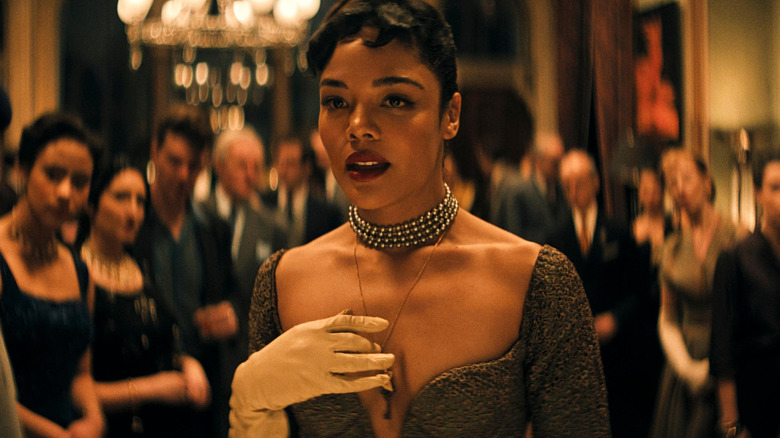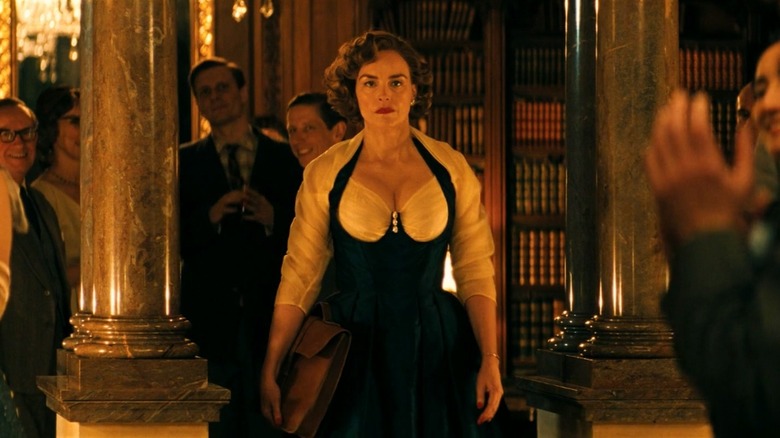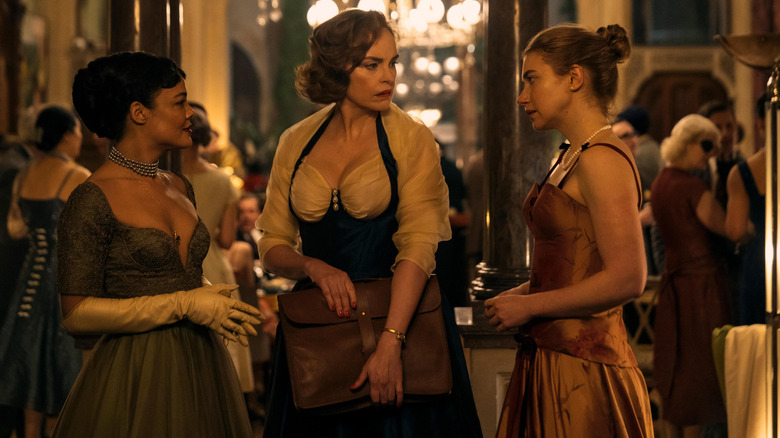The Best 2025 Movie You Haven't Seen Yet Is Now Streaming On Prime Video
Streaming services have been a game-changer in terms of accessibility, allowing audiences who might have never seen (or in many cases, even heard about) a film had it not been readily available to watch it from the comfort of their couch. Unfortunately, it's also led to an oversaturated market where hundreds of titles are competing for eyeballs on the same platforms, meaning even some of the best films released in a given year are left to languish in the shadows of titles given larger marketing budgets. To combat this distressing reality, it's more important than ever for any of us with a modicum of influence to be as loud as possible to draw attention to the must-see new releases and help combat the cluttered avalanche of "content" that overwhelms us into choice paralysis and leads us to rewatching our favorite sitcom for the fifth time instead of seeking out something fresh.
Which is why I'm here to encourage you to seek out Nia DaCosta's "Hedda" on Prime Video, one of the best films of 2025 that was unceremoniously released on the platform to little fanfare on October 29. The majority of people likely only know DaCosta's work on the "Candyman" sequel and her becoming the highest-grossing Black female director thanks to "The Marvels," which is a shame considering her first feature, "Little Woods," was, as Hoai-Tran Bui wrote for /Film, "an astonishing debut." After two high-profile franchise films and ahead of her journey into "28 Years Later: The Bone Temple," due out in January 2026, DaCosta is back to where she started — writing and directing on her own and giving Tessa Thompson career-best material.
"Hedda" is a bisexual and biracial update of Henrik Ibsen's 1891 play "Hedda Gabler," and the result is entrancing chaos in the best way possible.
Hedda is a classic reimagining done right
"Hedda" plays out like a fever dream of decadence and despair, swapping Ibsen's parlor for a mid-century extravaganza of Gatsby-esque excess. All the drama typically relegated to the offstage via calls is now thrust into the lavish home Hedda cannot afford, ramping up the tension of a story about domestic confinement into a volatile spectacle where class tension, queerness, and rebellion clash under the weight of postwar respectability. Thompson plays Hedda deliciously, contrasted with perfection by her milquetoast husband George (Tom Bateman), an academic she's married for convenience, and who accepts that he'll never be able to find another woman as beautiful or as interesting. Not unlike Marie Antoinette, Hedda masks her boredom with opulence, hosting massive parties to distract her from the reality that she's living a lie.
It all comes to a head when she throws a tremendous soirée where her husband is trying to impress a potential employer at a university, which would allow them to mend their dwindling finances. Still, he's up against Eileen Lovborg (Nina Hoss), the intellectual rival (and Hedda's former lover) now partnered with the timid, albeit devoted Thea (Imogen Poots), Hedda's former schoolmate. The reunion ignites a spiral of emotions like lust and jealousy, but mostly Hedda is on a mission to get what she wants without ever actually expressing her desires and with absolutely zero concern for anyone who gets burned in the process. That's what makes her such a fascinating character: Hedda devours others to fill the void within her, and there's a reason this character has been played by countless greats (Cate Blanchett, Maggie Smith, Fiona Shaw, Annette Bening, Ingrid Bergman, Isabelle Huppert, and Diana Rigg, for instance), but DaCosta's reimagining provides a new avenue for her complexities to pore over.
Hedda is for those who yearn to burn it all down
While Thompson is the tour de force at the center of the film, DaCosta shapes her cast with the grace of a filmmaker painting in motion. Nina Hoss' Eileen radiates as the former lover that Ibsen originally imagined as a man, but the shift in gender presentation allows for a deeper, more thoughtful exploration of the place of women who refuse to fulfill traditional gendered expectations in behavior or desire in a patriarchal society. Eileen, tempered by the grind of a patriarchal institution, has clawed her way toward recognition. By contrast, as a Black woman, Hedda faces opposition that Eileen will never have to encounter, and the film has no problem identifying that in this new century, progress has dressed itself up in modernity, but DaCosta's lens burns through the illusion that things are "better."
Better for whom?
Although the film is set in the 1950s, DaCosta filmed in the real-life Flintham Hall Manor, reminding the audience that, like the source material, the institutions keeping us caged have existed longer than any of us watching it have. By taking a beloved classic work of theatre and intertwining reflections on identity, race, and privilege into the drama at the center of the party, "Hedda" expands the scope of the original story and brings new meaning to the line, "It's a release to know that in spite of everything, a premeditated act of courage is still possible."


